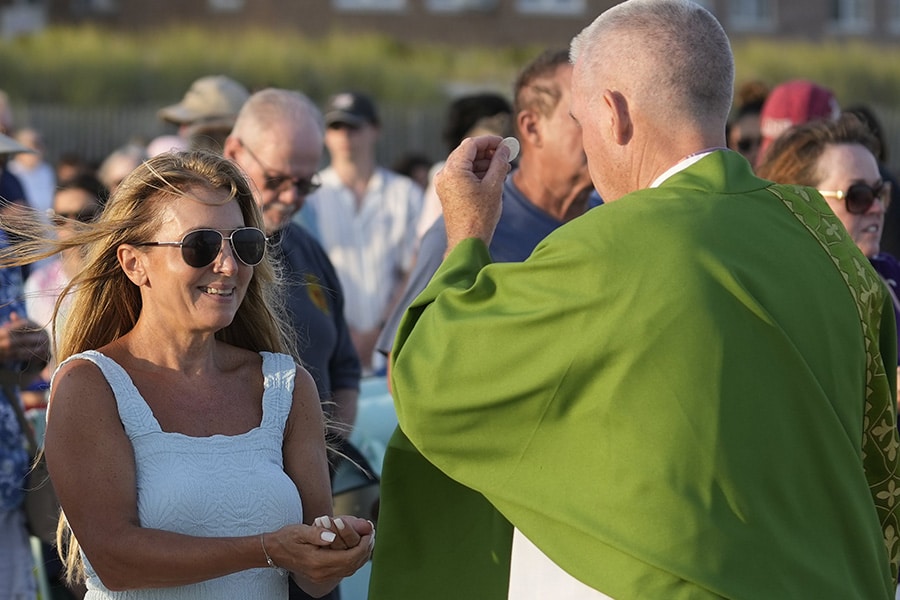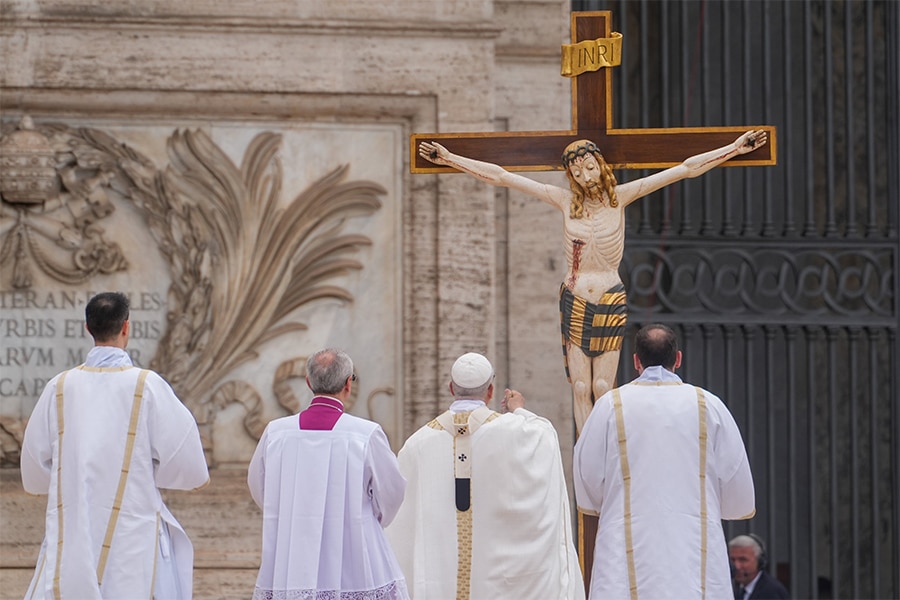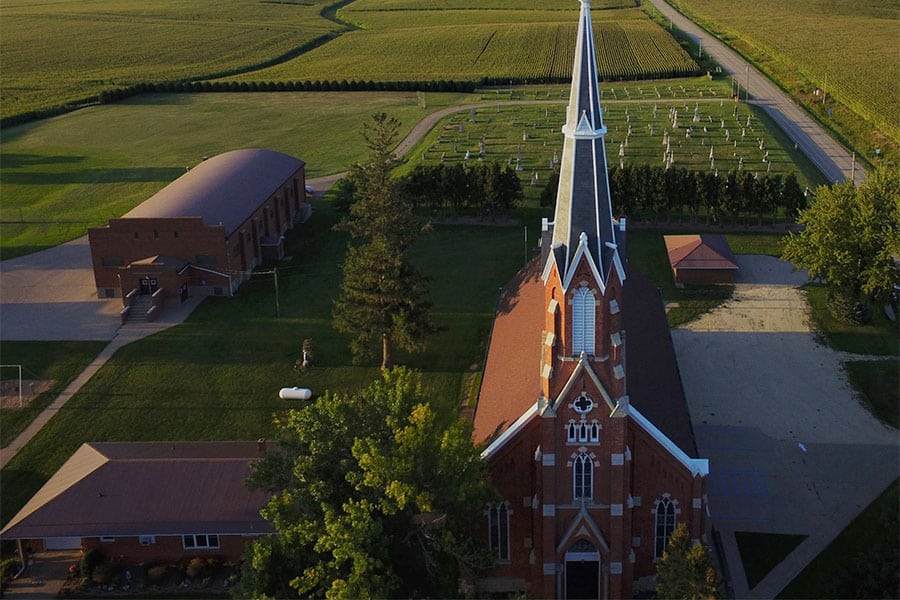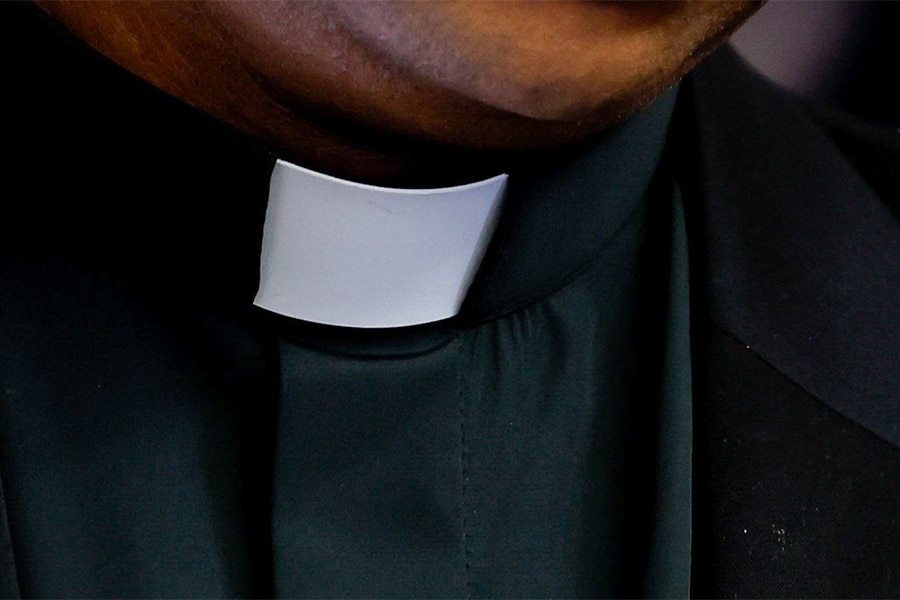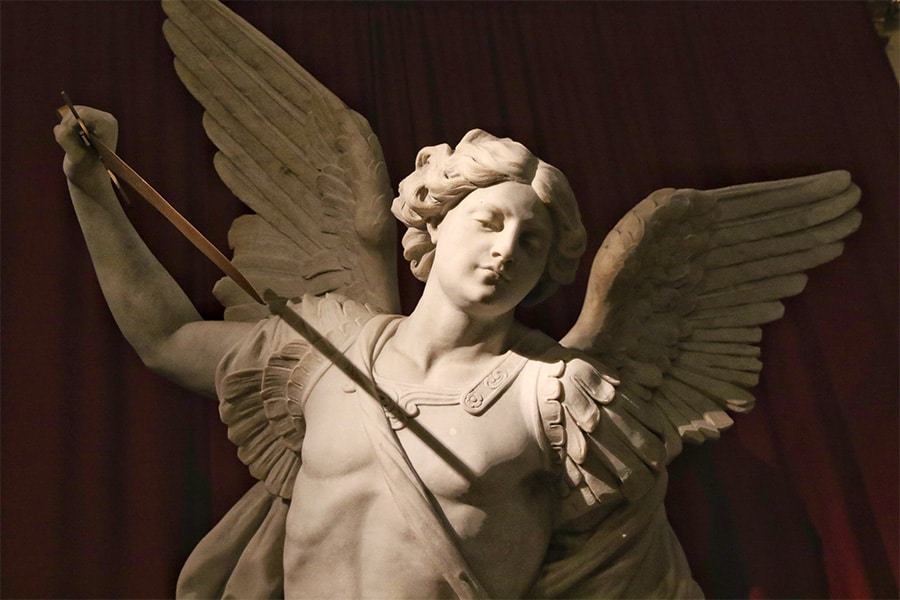Q. We have all been dealing with the havoc of the coronavirus, and here on the West Coast, forest fires are causing loss of life and wide property devastation. Some people have lost everything. It has been said that God doesn’t allow things to happen beyond what people can cope with, but I’m not sure that this is true.
So if one has lost all that he owned (and perhaps even a family member) and that person commits suicide, has he committed a mortal sin? I don’t believe so; it seems to me that person was in despair and that his state of mind probably does not qualify for eternal damnation. Your thoughts? (Beaverton, Oregon)
A. Suicide has always been considered by the Catholic Church as a grave offense, which is one of the elements that constitutes mortal sin. As the Catechism of the Catholic Church states, “It is God who remains the sovereign master of life. … We are stewards, not owners, of the life God has entrusted to us. It is not ours to dispose of” (No. 2280).
But gravity of matter, of course, is only one of the three requirements for a mortal sin — the others being sufficient reflection and full consent of the will. And it is here that the church now adopts a more nuanced approach with regard to someone who takes his own life. When I was first ordained a priest (in 1966) the church normally did not permit a funeral Mass or burial in a Catholic cemetery for someone who had taken his own life. But that is no longer so.
As this same catechism (promulgated by St. John Paul II in 1992) says: “Grave psychological disturbances, anguish or grave fear of hardship, suffering or torture can diminish the responsibility of the one committing suicide. We should not despair of the eternal salvation of persons who have taken their own lives” (Nos. 2282-83).
Commonly, then, in the present day the church gives the benefit of the doubt to a suicide victim and grants a Catholic funeral and burial. The church makes the pastoral judgment that there may well have been mitigating circumstances and that the person — due to severe depression or mental illness — may not have been capable of making that decision with full freedom.
Q. Does it count as true forgiveness if you don’t hate the person, if you pray for their well-being, yet purposely avoid them because you’ve seen enough to know that they won’t change their ways (gossiping, etc.)?
A. Forgiveness is essential to the Christian way of life. We have only to think of St. Stephen, the first Christin martyr. Stoned outside the city of Jerusalem, he died praying for his executioners. He took his example, of course, from Jesus, who said from the cross, “Father, forgive them, they know not what they do” (Lk 23:34).
Earlier, after giving us the Lord’s Prayer, Jesus had said: “If you forgive others their transgressions, your heavenly Father will forgive you” (Mt 6:14). So, a willingness to forgive those who have offended us is a Christian imperative.
At the same time, though, the church does not dictate whom you have to “hang out” with. In your own case, I believe that you have done everything you are obligated to do: You do not hate the one who offended you, and you continue to pray for his or her well-being.
To continue to fraternize with that person may not only be unpleasant for you; it could also “pull you down” into the world of gossiping. You are justified, I would think, in keeping your distance.
More Questions & answers
Copyright © 2020 Catholic News Service/U.S. Conference of Catholic Bishops


